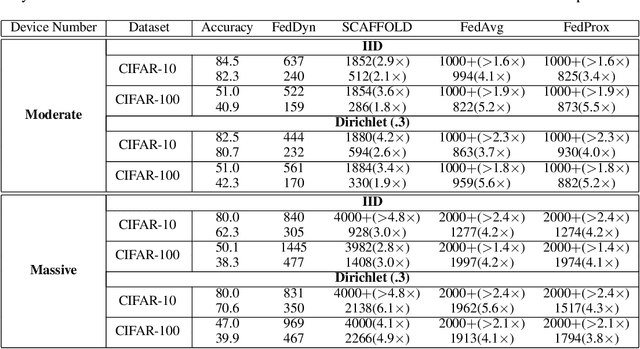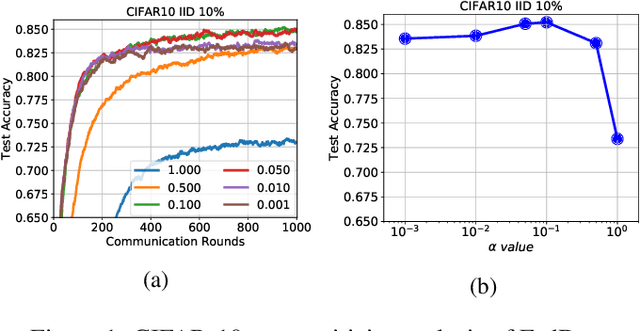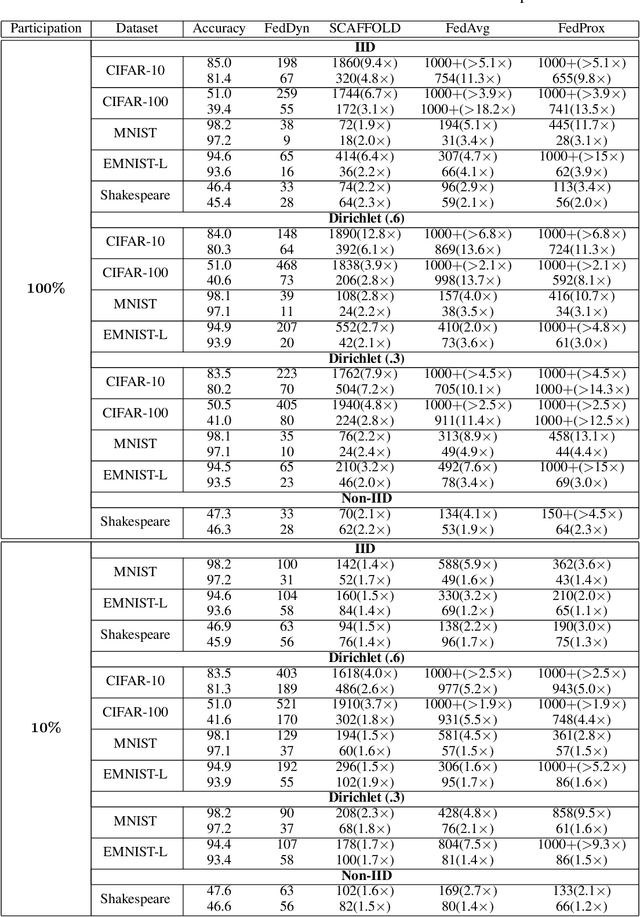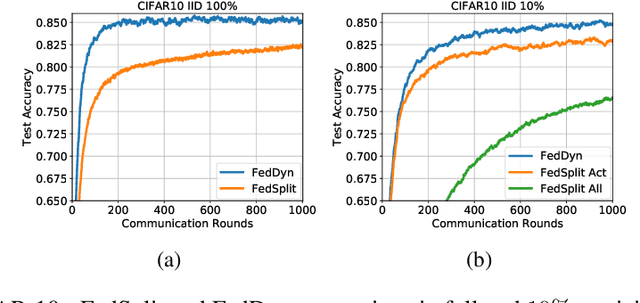Federated Learning Based on Dynamic Regularization
Paper and Code
Nov 09, 2021



We propose a novel federated learning method for distributively training neural network models, where the server orchestrates cooperation between a subset of randomly chosen devices in each round. We view Federated Learning problem primarily from a communication perspective and allow more device level computations to save transmission costs. We point out a fundamental dilemma, in that the minima of the local-device level empirical loss are inconsistent with those of the global empirical loss. Different from recent prior works, that either attempt inexact minimization or utilize devices for parallelizing gradient computation, we propose a dynamic regularizer for each device at each round, so that in the limit the global and device solutions are aligned. We demonstrate both through empirical results on real and synthetic data as well as analytical results that our scheme leads to efficient training, in both convex and non-convex settings, while being fully agnostic to device heterogeneity and robust to large number of devices, partial participation and unbalanced data.
 Add to Chrome
Add to Chrome Add to Firefox
Add to Firefox Add to Edge
Add to Edge